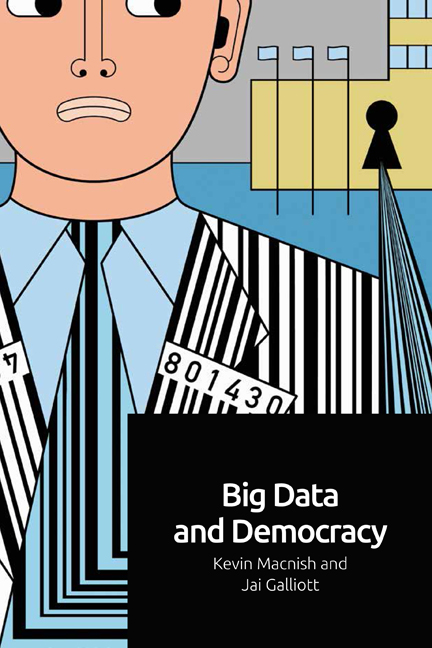An Introduction to Big Data and Democracy
Published online by Cambridge University Press: 17 October 2020
Summary
Over the past decade, political systems across Europe, Asia and North America have been challenged by events including large waves of immigration, a resurgence of economic protectionism and the rise of a pernicious brand of nationalism. Established politicians have adapted their rhetoric and processes in ways that risk alienating the population bases they serve, while populist politicians promising easy solutions have gained significant traction with the electorate. Yet in the coming decade, the greatest challenge to face democracies will be to develop new capabilities and protections that allow for the appropriate management and exploitation of big data. We use the term ‘big data’ to mean the exponentially increasing amount of digital information being created by new information technologies (such as mobile Internet, cloud storage, social networking and the ‘Internet of Things ‘ that has come to include everything from polling machines to sex toys), as well as the advanced analytics used to process that data. Big data yields not simply a quantitative increase in information, but a qualitative change in how we create new knowledge and understand the world, bringing with it a host of ethical questions. These data-related information technologies have already begun to revolutionise commerce and science, transforming the economy and acting as enablers for other game-changing technology trends, from next-generation genomics to energy exploration.
Despite this, the impact of big data on democracy has only recently come under the microscope. This is not altogether surprising. The term ‘big data’ entered general public consciousness early in 2012 when an article by Charles Duhigg in the New York Times reported on a US superstore identifying a teenage girl as pregnant before she had told her father (Duhigg 2012). The early public focus on the impact of big data thus fell on retail opportunities and threats to civic and individual values such as privacy . In the UK at least, the Care.Data fiasco of 2014, in which the government announced that all data collected on patients in the UK would be entered into a single database without seeking consent, turned attention to medical applications (Knapton 2016).
- Type
- Chapter
- Information
- Big Data and Democracy , pp. 1 - 10Publisher: Edinburgh University PressPrint publication year: 2020



